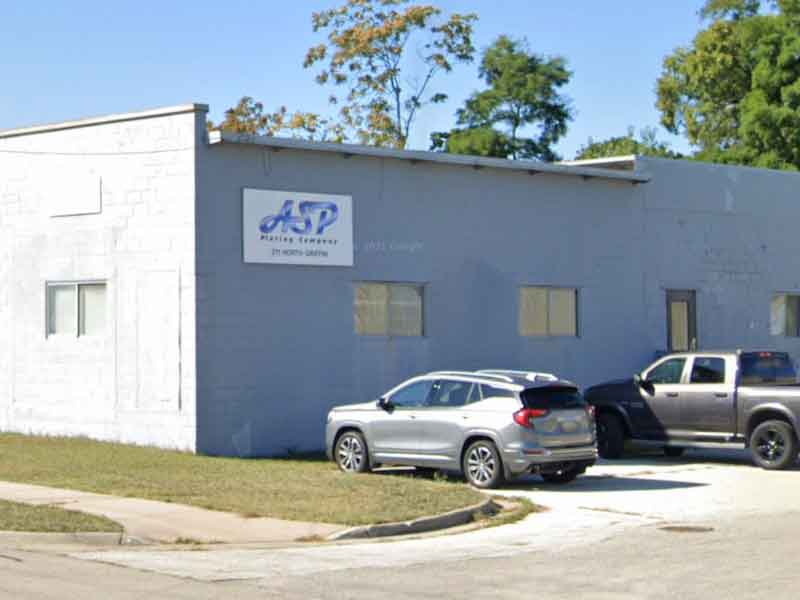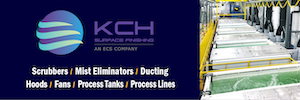The owners of ASP Plating in Grand Haven have been sentenced for violating the Clean Water Act.
Mark Totten, U.S. Attorney for the Western District of Michigan, says ASP Plating Company of Grand Haven, Gary Stephen Rowe, 70, of Grand Haven, and Stephen Frederick Rowe, 39, formerly of Grand Haven and currently of Oklahoma, were sentenced for violating the Clean Water Act and collectively ordered to pay more than $50,000 in financial penalties.
“The success of the Clean Water Act depends in part on industrial permit holders diligently complying with the law to ensure public health and safety measures are upheld,” Totten says. “If you can’t afford to follow environmental laws, you shouldn’t be in business. And if you commit environmental crimes in this district, all sentencing options are on the table, including jail time and substantial fines.”
Gary Rowe, president of the company, pleaded guilty to a felony violation. United States District Judge Paul L. Maloney sentenced Rowe to three months and one day in custody, to be followed by nine months of location monitoring as a part of a one-year term of supervised release. Rowe was also ordered to pay a $20,000 fine, $13,500 due to the Grand Haven-Spring Lake Sewer Authority under an administrative consent order, $4,212.54 in restitution to the City of Grand Haven, and a $100 special assessment.
ASP Plating Company pleaded guilty to a felony violation. Judge Maloney sentenced the company, which filed for bankruptcy in October 2022, to three years of probation, a $5,000 fine, a $400 special assessment, and the restitution amounts Gary Rowe was ordered to pay.
Stephen Rowe, vice president of the company, pleaded guilty to a misdemeanor violation. United States Magistrate Judge Sally J. Berens sentenced him to 14 days in jail, one year of supervised release, a $10,000 fine, $4,212.54 in restitution, and a $25 special assessment. The restitution obligations are joint and several.
According to public records filed in the case, the individual defendants operated the corporate defendant, an electroplating company that held an industrial pretreatment permit issued by the Sewer Authority. At least between 2015 and 2021, the company routinely violated the permit by discharging zinc in excess of the daily and monthly limitations, by releasing zinc in batches without notice, and by bypassing the mandatory pretreatment system entirely. The Sewer Authority periodically monitored the company’s discharges, but Gary and Stephen Rowe instructed employees to make sure the monitor was absent before discharging wastewater containing excessive amounts of zinc.
“The Defendants negatively impacted the public waste treatment program work by illegally causing improperly treated waste to enter the Grand Haven-Spring Lake Sewer Authority municipal sewer system,” says Richard Conrad, Acting Special Agent in Charge of the U.S. Environmental Protection Agency’s Criminal Investigation Division. “Those companies who knowingly violate environmental laws will be held accountable for their actions.”
The Clean Water Act is the primary law governing pollution of the Nation’s surface waters. Congress first passed the law in 1948, totally revised it in 1972, and subsequently amended the law several times thereafter. In passing the law, Congress declared that its purpose was “to restore and maintain the chemical, physical, and biological integrity of the Nation’s waters.” 33 U.S.C. § 1251(a). Among other provisions, the Act regulates industrial and municipal discharges. To achieve its goal of preserving clean water, parts of the Act are based on the concept that all discharges into the Nation’s waters by industrial and municipal users are illegal unless specifically authorized by a permit. The law has civil, criminal, and administrative enforcement provisions.
EPA-CID conducted the investigation with assistance from the Michigan Department of Natural Resources-Environmental Investigation Section. The case was prosecuted by Assistant U.S. Attorney Justin M. Presant.



































